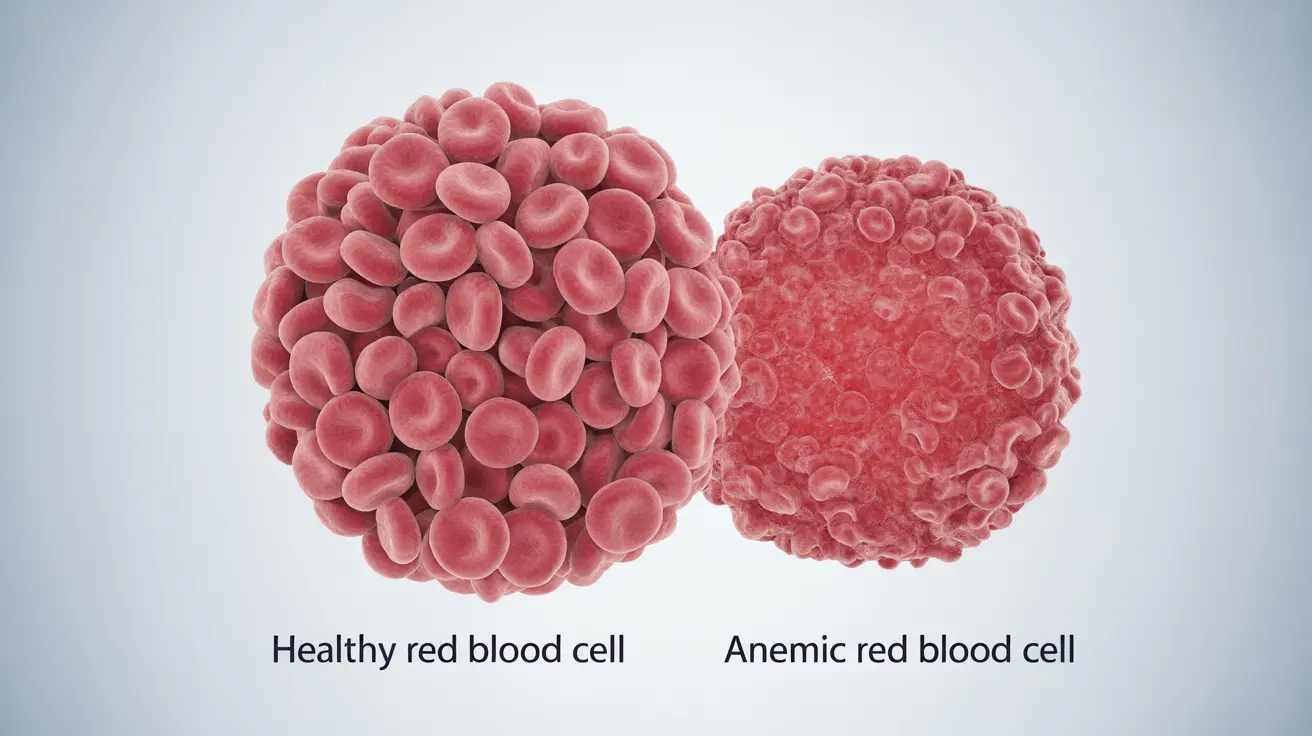Anemia is a common blood condition affecting millions of people worldwide, occurring when your body doesn't have enough healthy red blood cells to carry adequate oxygen to your tissues. Understanding this condition is crucial for early detection and proper management, as it can significantly impact your quality of life if left untreated.
While anemia can range from mild to severe, the good news is that most forms are treatable with proper medical care and lifestyle modifications. This comprehensive guide will help you understand the symptoms, causes, and treatment options available for managing anemia effectively.
Common Signs and Symptoms of Anemia
Recognizing the symptoms of anemia is the first step toward getting appropriate treatment. Common indicators include:
- Persistent fatigue and weakness
- Shortness of breath
- Pale or yellowish skin
- Dizziness or lightheadedness
- Cold hands and feet
- Irregular heartbeats
- Headaches
These symptoms may develop gradually and can be subtle at first, which is why it's important to pay attention to any unusual changes in your body and consult with a healthcare provider if you notice these signs.
Understanding the Causes and Risk Factors
Anemia can develop due to various underlying conditions and circumstances. The most common causes include:
Iron Deficiency
The most prevalent form of anemia occurs when your body lacks sufficient iron to produce hemoglobin. This can result from:
- Blood loss
- Insufficient dietary iron intake
- Poor iron absorption
- Increased iron needs during pregnancy
Other Common Causes
Additional factors that can lead to anemia include:
- Vitamin B12 or folate deficiency
- Chronic diseases
- Genetic conditions
- Bone marrow problems
- Certain medications
Diagnosis and Treatment Approaches
Healthcare providers typically diagnose anemia through blood tests that measure hemoglobin levels and other blood components. The complete blood count (CBC) test is usually the first step in evaluation.
Treatment options vary depending on the type and cause of anemia but may include:
- Iron supplements
- Vitamin B12 injections or supplements
- Dietary changes
- Blood transfusions in severe cases
- Treatment of underlying conditions
Managing Anemia During Pregnancy
Pregnancy increases the body's demand for iron and other nutrients. Proper management of anemia during pregnancy is crucial for both mother and baby's health. Treatment typically involves:
- Prescribed prenatal vitamins
- Iron supplementation
- Regular blood level monitoring
- Dietary modifications
- Close medical supervision
Lifestyle and Dietary Changes for Prevention
Making certain lifestyle modifications can help prevent or manage anemia:
Diet Recommendations
- Iron-rich foods (lean meats, seafood, beans)
- Vitamin C-rich foods to enhance iron absorption
- Dark leafy greens
- Fortified cereals and grains
Healthy Habits
- Regular exercise within your capacity
- Adequate rest and stress management
- Avoiding excessive tea or coffee with meals
- Regular medical check-ups
Frequently Asked Questions
- What are the most common symptoms that indicate I might have anemia?
The most common symptoms include persistent fatigue, weakness, shortness of breath, pale skin, dizziness, and cold hands and feet. You might also experience headaches and irregular heartbeats.
- What causes anemia and who is at higher risk of developing it?
Anemia is primarily caused by iron deficiency, vitamin B12 deficiency, chronic diseases, or genetic conditions. Those at higher risk include pregnant women, menstruating women, older adults, people with chronic conditions, and those with poor dietary intake of iron and vitamins.
- How is iron deficiency anemia diagnosed and treated?
Diagnosis typically involves blood tests, particularly a complete blood count (CBC). Treatment usually includes iron supplements, dietary changes, and addressing any underlying conditions causing the anemia.
- Can anemia during pregnancy be safely treated, and what are the best options?
Yes, anemia during pregnancy can be safely treated through prescribed prenatal vitamins, iron supplements, and dietary modifications. Regular monitoring by healthcare providers ensures proper management and safety.
- What lifestyle and dietary changes can help prevent or manage anemia?
Key changes include consuming iron-rich foods, vitamin C-rich foods to enhance iron absorption, maintaining a balanced diet, getting regular exercise, and having routine medical check-ups. Avoiding tea or coffee with meals can also help improve iron absorption.




